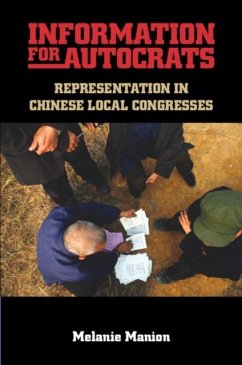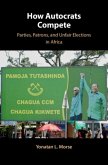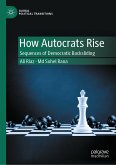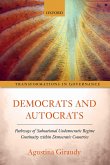This book investigates the new representation unfolding in Chinese local congresses. Drawing qualitative fieldwork and data analysis from original surveys of 5,130 township, county, and municipal congressmen and women and constituents, Melanie Manion shows the priorities and problems of ordinary Chinese significantly influence both who gets elected to local congresses and what the congresses do once elected. Candidates nominated by ordinary voters are 'good types', with qualities that signal they will reliably represent the community. By contrast, candidates nominated by the communist party are 'governing types', with qualities that reflect officially valued competence and loyalty. However, congressmen and women of both types now largely reject the Maoist-era role of state agent. Instead, they view themselves as 'delegates', responsible for advocating with local government to supply local public goods. Manion argues that representation in Chinese local congresses taps local knowledge for local governance, thereby bolstering the rule of autocrats in Beijing.
Dieser Download kann aus rechtlichen Gründen nur mit Rechnungsadresse in A, B, BG, CY, CZ, D, DK, EW, E, FIN, F, GR, HR, H, IRL, I, LT, L, LR, M, NL, PL, P, R, S, SLO, SK ausgeliefert werden.









